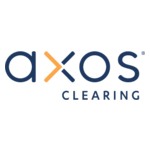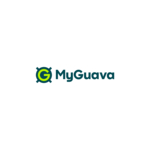Blockchain and Bitcoin round-up: 25 July 2017
Don’t expect silence or tumbleweeds blowing down the street in the world of blockchain and Bitcoin. Our latest round-up features Microsoft, LedgerX and Bank of America Merrill Lynch.
Microsoft is introducing enterprise smart contracts as it delves deeper into the blockchain arena. This announcement, in a long blog post, follows on from last year’s launch of Project Bletchley – its open, modular blockchain fabric powered by Azure. Since that time, it has been working directly with its partners and customers to “understand how the cloud can help developers build a new generation of modern applications with blockchain as a core data layer”.
Its initial goal is for “Blockchain-as-a-Service” to let developers set up a lab environment. On top of that, the plan for Microsoft’s enterprise smart contract framework is to provide the infrastructure and tools to build on this platform. Uses include an integration point for existing enterprise systems like ERP and CRM; and internet of things (IoT) integration through its Azure IoT suite.
 LedgerX, a New York-based trading and clearing platform for digital currencies, has got approval to operate the “first US federally-regulated exchange and clearing house for derivatives contracts settling in digital currencies”.
LedgerX, a New York-based trading and clearing platform for digital currencies, has got approval to operate the “first US federally-regulated exchange and clearing house for derivatives contracts settling in digital currencies”.
Participants in the LedgerX venue will be able to obtain and hedge Bitcoin and other digital currencies using exchange-traded and centrally-cleared options contracts. Initially, LedgerX says it anticipates listing one to six-month options contracts for Bitcoin (BTC). Other digital currency contracts such as Ethereum (ETH) options, are expected to follow – but no timelines or specifics were offered.
In a report by CNBC, Bitcoin still faces many challenges in becoming a globally accepted currency, according to Bank of America Merrill Lynch’s (BAML) commodity and derivatives strategist Francisco Blanch. With a nod to the past, he compared digital currencies’ growth to that of gold, silver and even salt in ancient times – meaning that Bitcoin “may soon be considered legitimate”. Blanch says a “crucial hurdle” for Bitcoin is whether major financial institutions will accept the digital currency as collateral; “but we are not aware of any major institution that takes cryptocurrency as collateral at the moment”.
The report also included insight on how Bitcoin is gaining traction as a potential investment product – i.e. it briefly tripled in value this year, rising from below $1,000 to $3,000 in June. This week it traded near $2,800. Blanch’s comments also included the inevitable point about its lack of safety. By the way, last year, BAML, HSBC and the Infocomm Development Authority of Singapore (IDA) teamed up to develop a blockchain prototype for trade finance innovation.








































